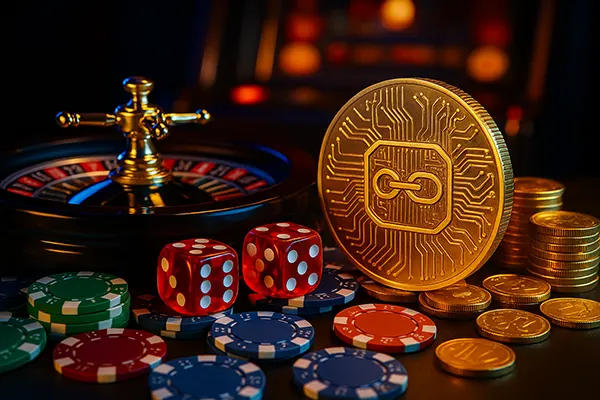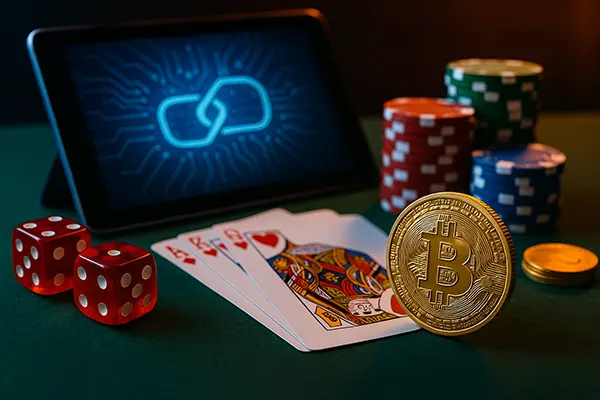
How Blockchain and NFTs Reshape Ownership and Rewards in Gambling
In recent years, blockchain technology and non-fungible tokens (NFTs) have moved far beyond their early experimental stages and are now redefining the concept of digital ownership. Within the gambling sector, these innovations are creating new models of reward distribution, player engagement, and transparency. By 2025, blockchain-driven systems are already proving to be a transformative force, altering how operators manage fairness and how players experience games.
Blockchain’s Role in Transparency and Fair Play
One of the most significant advantages of blockchain in gambling is its ability to guarantee fairness. Every transaction and outcome can be recorded on an immutable ledger, allowing both operators and players to verify results independently. This level of transparency minimises disputes, as the information is open to public verification.
Additionally, blockchain technology reduces reliance on intermediaries. Traditional systems often involve payment providers or third-party verifiers, which can slow down transactions and create additional costs. With blockchain, funds can be transferred directly, ensuring speed and reducing expenses for both operators and participants.
Beyond financial transactions, blockchain ensures the authenticity of games themselves. Developers are able to publish verifiable game code, confirming that the mechanics remain unaltered and outcomes are not manipulated in favour of the house.
Smart Contracts and Automated Payouts
Smart contracts are another core element of blockchain adoption. These self-executing agreements automatically distribute rewards when specific conditions are met. For example, a player’s winnings can be transferred instantly without requiring approval from the operator’s system.
This automation increases trust between users and providers. Since smart contracts are coded to operate transparently, both parties know exactly how payouts will occur. As a result, delays and disputes over prize distribution become far less common.
Furthermore, smart contracts provide security by reducing human error. Once programmed, they cannot be altered without detection, reinforcing the integrity of gambling ecosystems built on blockchain foundations.
NFTs as Digital Proof of Ownership
Non-fungible tokens are extending the concept of ownership within digital environments, including gambling. Unlike standard digital assets, NFTs are unique and irreplaceable. They can represent anything from in-game items to exclusive access rights within a casino’s ecosystem.
For players, NFTs function as proof of ownership that cannot be duplicated or forged. A limited-edition token tied to a game or reward becomes a verifiable asset with potential value beyond the original context. These tokens can even be traded or resold, creating an additional economic layer.
Operators are using NFTs to design loyalty schemes that feel more personal. Instead of generic rewards, players may hold digital assets tied to specific achievements, tournaments, or promotions, making engagement more meaningful.
Tradable Rewards and Marketplaces
One of the most innovative applications of NFTs in gambling lies in their tradeability. Rather than receiving static bonuses, players can own rewards that carry value on decentralised marketplaces. This means that an NFT earned during a promotional event might later be sold or exchanged for cryptocurrency or another digital item.
The ability to transfer ownership of digital rewards creates an entirely new dimension of engagement. Players no longer view bonuses as temporary incentives but as lasting assets with potential long-term value. This dynamic adds a collectible element that keeps users engaged beyond individual sessions.
By 2025, several gambling providers have already integrated NFT marketplaces into their platforms, allowing players to freely exchange assets. This approach supports the creation of self-sustaining ecosystems where users feel more invested in their experience.

Shaping the Future of Player Engagement
The combination of blockchain and NFTs is setting the stage for a more decentralised and player-focused future in gambling. Instead of relying solely on operator-controlled systems, participants are gaining real ownership of their assets and rewards. This shift empowers players, granting them a stronger role in how the industry evolves.
Moreover, these technologies support new business models. Operators are able to experiment with profit-sharing structures, where players receive a portion of revenues based on the NFTs they hold. Such models encourage long-term loyalty and turn participants into active stakeholders rather than passive consumers.
Governance systems are also emerging, with some projects allowing token holders to vote on decisions affecting gameplay, reward distribution, or community rules. This increases inclusivity and strengthens trust in the industry as a whole.
Challenges and Regulation Ahead
Despite the opportunities, challenges remain. Regulatory frameworks for blockchain and NFTs in gambling are still developing, with significant differences across jurisdictions. Operators must navigate compliance issues to avoid legal risks, particularly around anti-money laundering and consumer protection.
Another concern involves accessibility. Not all players are familiar with cryptocurrencies, wallets, or blockchain transactions, which may create barriers to entry. Educational efforts and simplified user interfaces will be necessary to broaden adoption.
Security remains a priority as well. While blockchain itself is secure, NFT marketplaces and decentralised apps can be vulnerable to scams or poorly written smart contracts. Ongoing development and oversight will be required to protect both operators and players in this evolving landscape.
